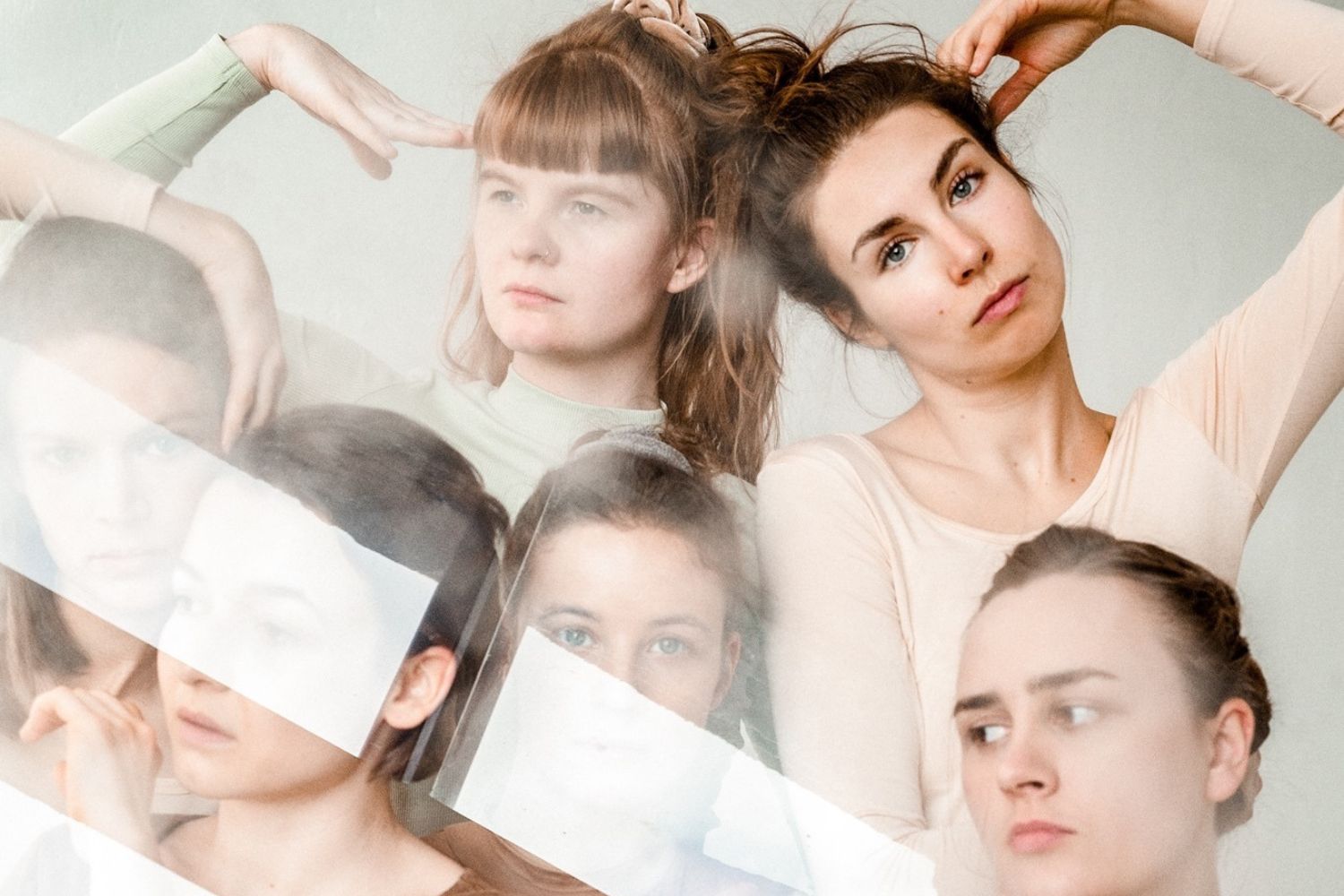We chat to the ethereal vocal sextet ahead of their Nordic Night tour, where they're set to appear at Melbourne Recital Centre on July 21.
In recent weeks, German a capella group Sjaella has been touring the south of Germany. Viola Blache (soprano), says life on the road continues to reveal exciting new places and people.
“Touring in the south of Germany has been hot, as it is getting to the height of summer there,” says Seidel. “One of the concerts at Musikfest ION in Nuremberg took place in a cool church at 11pm – a beautiful experience. Both us and the audience were tired from the heat and efforts of the day but still wanting to enjoy the active long summer night. That allowed us to relax deeply into the music.”
Keep up with the latest music news, festivals, interviews and reviews here.
Sjaella, a voice group from Leipzig, makes universal voice music that incorporates elements from a wide pool of genres including classical, pop, jazz, and folk.
They are one of a vast range of groups that belong to the “universal vocal music scene”.
The National History of Song (NHS) Ethnography holds nearly 5,000 descriptions of songs and song performances from 60 human societies. It also features a discography of 118 songs from 30 distinct geographic regions and 86 cultures.
Voice music performance around the world is differentiated by the artists themselves, venues, durations of performance, audience members, and even time of day the music is performed.
Seidel says artists in the universal voice music scene share a connection that revolves around the beauty and the possibilities of the human voice
“No matter which genre a group sings (Renaissance polyphony, contemporary, vocal jazz, pop, etc), the overlapping goal seems to be a drive for vocal expression and exploration,” says Seidel.
“Within the vocal music scene, we’ve experienced hardly any competitive struggle — not even at competitions.
“Everyone seems to celebrate what other groups do, and inspiration is taken on from that. This might relate to the shared passion for singing in a community and its beneficial effects on our lives.”
Sjaella, who is on tour in Australia now, takes a lot of inspiration from the natural beauty of Europe’s Nordic regions. According to Seidel, the fact that these natural wonders are always changing is a further source of fascination and inspiration.
“They are in movement; they appear and disappear; they are momentary — just like a musical piece.
“That changing character of nature has an effect on ourselves, our bodies, and our minds.
“What does the transition from day to night do to our emotions? How does the observation of a starlit sky influence our thoughts? What stories and melodies did people come up with in relation to the nature of their homeland throughout the centuries?”
Seidel adds that Sjaella takes its inspiration from the music that tells about the regions too.
“A couple of years ago, we sang in a tiny church up north in Norway, right next to a big fjord.… Besides drawing inspiration from Nordic landscapes ourselves, we are also curious about what inspiration the inhabitants of these regions draw from them.”
Sjaella’s origin story starts in 2005. Back then, with the group’s members aged between 9-11, years of touring, record releases, and awards were still ahead of them. The connection the group still enjoys today was already there however.
Now, in 2023, Sjaella is celebrating its 18th birthday.
“From today’s perspective, I appreciate the joy of playing together as children and the strength of purpose in presenting our first outputs to an audience,” Marie Charlotte Seidel, the vocal ensemble’s mezzo-soprano, adds.
“We took advantage of every performance opportunity and often went busking in the city centre of Leipzig. We tried out many things without thinking too much about what people might think. The greatest treasure is that in our childhood we were able to create together without time pressure and expectations of others. The existing ambition came from within ourselves from the beginning.
“On the other hand, the 11-year-old co-founder would be amazed by what Sjaella has learned during the years spent together.”
Sjaella’s Australian tour takes in dates across Victoria, NSW, South Australia and Tasmania, along with public workshops supported by Adelaide’s cultural centre UKARIA.
For the tour, the group is performing Nordic Night.
The night time-themed performances — which will happen in an eclectic range of venues, including Sydney’s St James Church, Hobart’s St David’s Cathedral, and Melbourne’s Elisabeth Murdoch Hall — will cover the territory of Ola Gjeilo’s Northern Lights, Meredi’s Crystallised, and Henry Purcell’s Spirits of the Night.
Seidel says Nordic Night is partly the result of Sjaella’s artistic goal to combine different styles of music (contemporary, Baroque, folk songs) under the arch of a common narrative or associative theme.
“We invite the audience to let themselves sink into the sound of our voices and foreign languages,” says Seidel. “They will start hearing them draw images of ice, stars, or the nordic sea, and tell stories of nocturnal longings, mythological beings, and loving people.”
The venues shape the performances too.
“We are happy to get to know a variety of very different venues on our tour – sacred spaces such as St David’s Cathedral Hobart or St James’ Church Sydney, the breathtaking chamber music hall of UKARIA cultural centre in Adelaide, big concert halls such as as Elisabeth Murdoch Hall at Melbourne Recital Centre, but also a private house of a family, as well as the house of the Governor of Tasmania. It’s a joy to send out our voices into those different places.”
Sjaella will perform at Melbourne Recital Centre (Elisabeth Murdoch Hall) on Friday 21 July 2023, 7:30pm.

